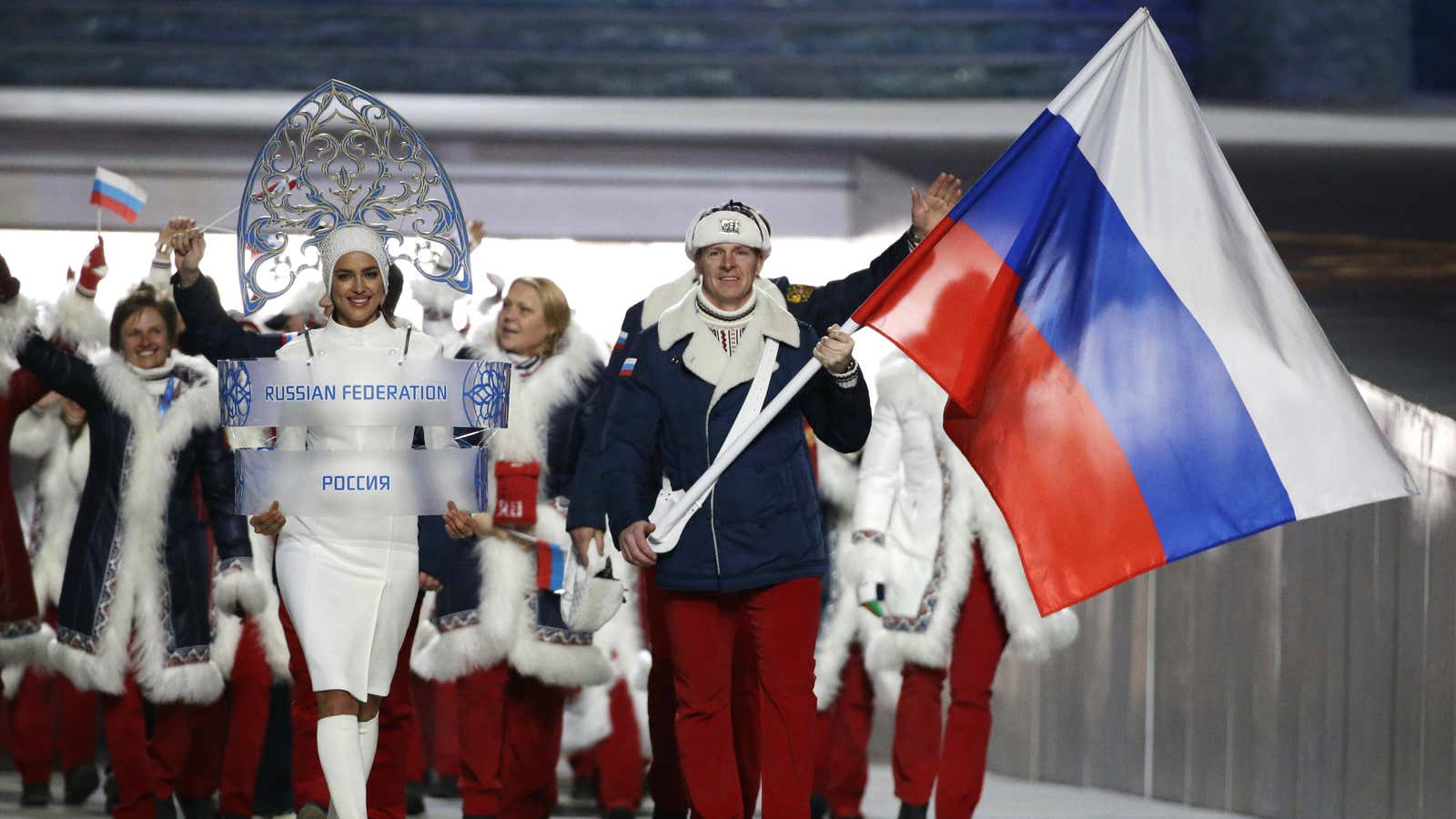A report by the World Anti-Doping Agency has concluded “beyond a reasonable doubt” that the Russian government is involved in an elaborate scheme to cover up evidence (pdf) of performance-enhancing drug use by its athletes. The cover-up spans almost every sport and many years, both before and after the 2014 Olympics in Sochi.
“The surprise result of the Sochi investigation was the revelation of the extent of State oversight and directed control of the Moscow laboratory in processing, and covering up urine samples of Russian athletes from virtually all sports before and after the Sochi Games,” said Richard McLaren, a Canadian lawyer who prepared the July 16 report.
One section details how Russia’s FSB spy agency—the successor to the KGB—developed a method to tamper with sealed urine sample bottles. “The FSB was intricately entwined in the scheme to allow Russian athletes to compete while dirty,” the report concludes. The “swapping occurred largely as described” in an exposé by the New York Times, which interviewed Grigory Rodchenkov, the country’s former anti-doping lab director, who became a whistleblower and fled to the United States.
The scheme went like this: Rodchenkov collected samples when athletes were not taking drugs. Then the FSB switched dirty samples for clean ones through a “mouse hole” in the laboratory wall, with table salt added to match the specific gravity of the originals. As evidence, investigators found that the doctored samples had their caps removed and unusually high levels of salt.
Several national anti-doping agencies—including those from the US, Germany, New Zealand, Japan, France, Denmark and Norway—are pushing for all Russian athletes to be banned from the Rio Games next month. Russian track and field athletes, with only three exceptions, have already been banned.
